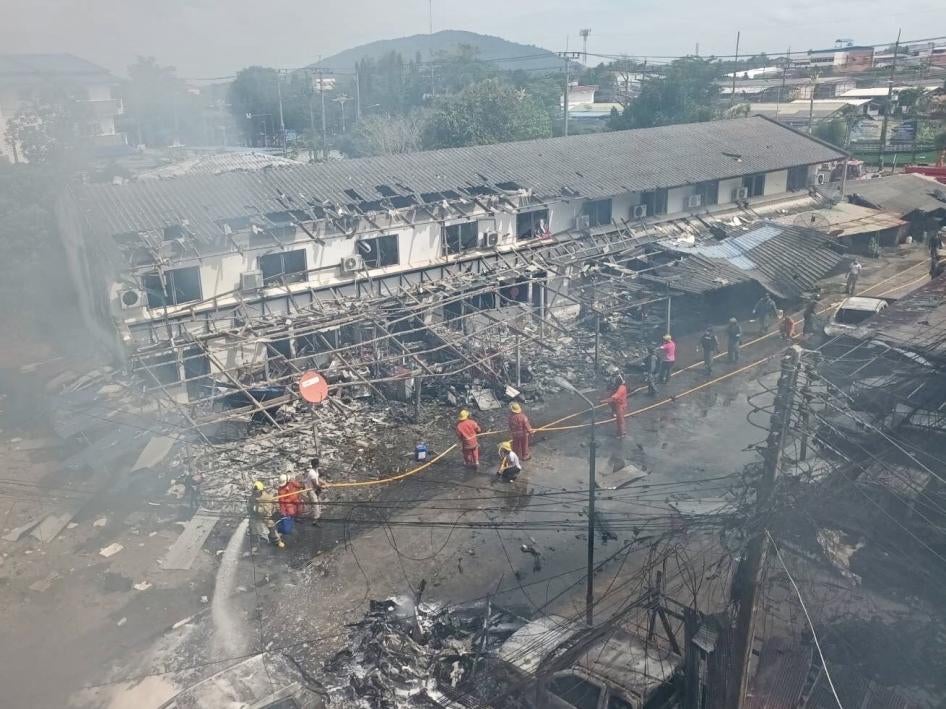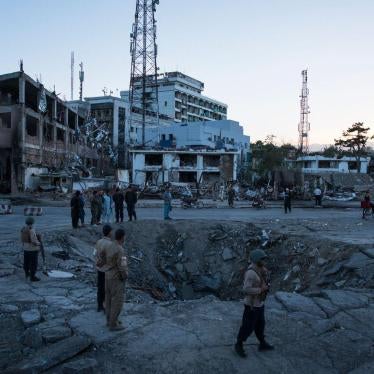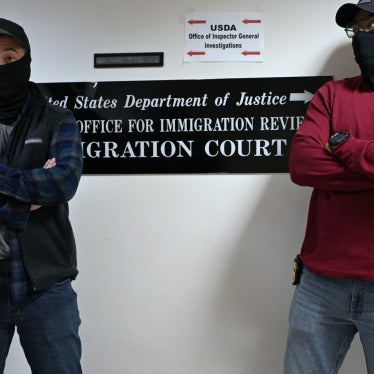(New York) – A car bomb planted by alleged separatist insurgents at a housing compound for police officers and their families in Thailand’s southern Narathiwat province showed grave disregard for civilian lives and violated international humanitarian law, Human Rights Watch said today.
Around noon on November 22, 2022, a suspected separatist insurgent dressed as an off-duty police officer in civilian clothes parked a pickup truck loaded with explosives inside the government housing compound for Narathiwat provincial police and their families, security camera footage and witness accounts indicate. Shortly thereafter, the bomb detonated, causing severe damage to the building and sparking a huge fire. The media reported that at least a police officer was killed and 31 persons, most of them civilians, were wounded, including 3 children. The bomber fled the scene.
“The unlawful bombing of an apartment building crowded with police officers and their families appeared aimed at causing the greatest possible loss of civilian life,” said Elaine Pearson, Asia director at Human Rights Watch. “Those responsible should be investigated for apparent war crimes.”
International humanitarian law or the laws of war, applicable in Thailand’s southern border provinces, protects civilians and civilian structures from attack. Thai provincial police in the south do not engage in counterinsurgency operations and are civilians, not combatants, under the laws of war. Deliberate or indiscriminate attacks on civilians are prohibited, and if carried out with criminal intent are war crimes. Those responsible for planning, ordering, or carrying out such attacks should be appropriately brought to justice, Human Rights Watch said.
Human Rights Watch has repeatedly condemned the numerous laws-of-war violations by separatist insurgents in Thailand’s southern border provinces over the past 18 years.
Of the more than 7,000 people killed in the ongoing armed conflict, about 90 percent have been civilians from the populations of ethnic Thai Buddhists and ethnic Malay Muslims in Pattani, Yala, Narathiwat, and Songkhla provinces.
Human Rights Watch also remains deeply concerned by violations of international human rights law and the laws of war by Thai government security forces and militias. Summary killings, enforced disappearances, and torture are never justified, including as reprisals for insurgent attacks. This situation has been reinforced by an entrenched culture of impunity for human rights violations by officials in the southern border provinces. The government has yet to successfully prosecute any officials for human rights abuses against ethnic Malay Muslims alleged to be involved in the insurgency.
“Thai authorities should thoroughly and impartially investigate the bombing of the apartment compound and hold accountable all those responsible,” Pearson said. “At the same time, the Thai government should recognize that so long as Thai security forces can commit abuses against ethnic Malay Muslims with impunity, armed separatist groups will exploit that to try to justify unlawful attacks.”







